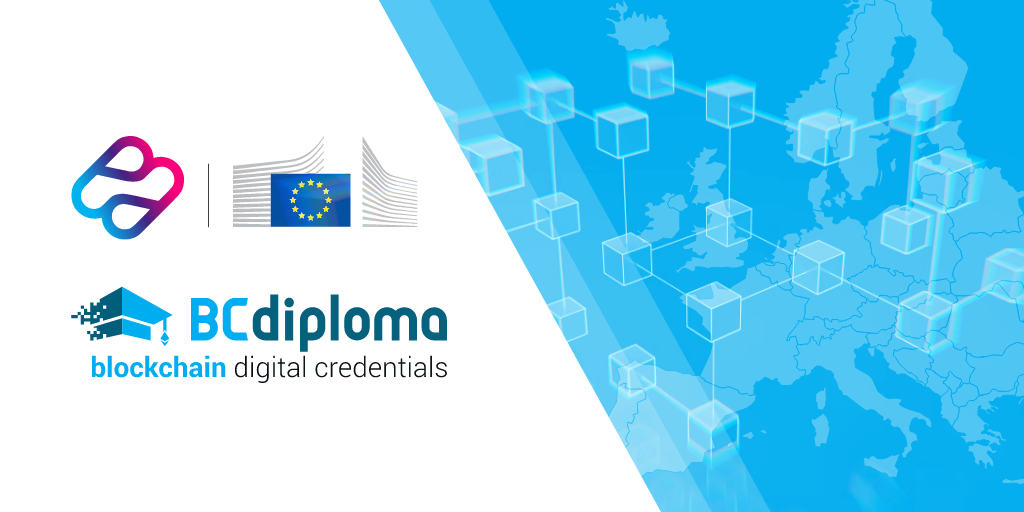In the news almost every day, the digital transformation of society is quickly gathering pace across economic sectors, and in the management of our daily lives. Aware of the digital opportunities, but also the risks, Europe has begun to invest in blockchain technology and solutions, in order to guarantee the data security of its citizens. The European Blockchain Services Infrastructure (EBSI), funded under the European Connecting Facility (CEF), is a concrete example of the usage of blockchain tech, blockchain authentication and secure digital identities at the service of Europe, its public sector, and administrative processes.
Discover, with BCdiploma, all the news and main features of EBSI, its importance, and use cases.
What is the EBSI ?
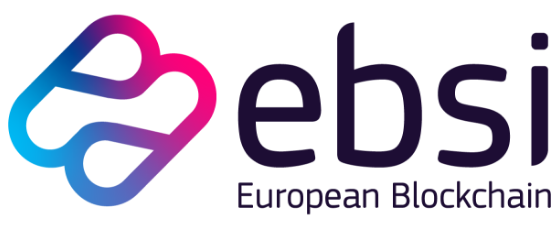
A partnership for the implementation of blockchain services
In 2018, the European Blockchain Partnership (EBP) was created to bring together the 27 Member States of the European Union, as well as Norway and Liechtenstein, to create the foundation of a unified, collaborative, blockchain management and support strategy. This partnership seeks to guarantee blockchain interoperability right across European countries, and full compliance with all EU laws.
As part of an overarching European blockchain strategy, the EBP and the European Commission joined forces in 2019 to launch the first phase of the European Blockchain Services Infrastructure (EBSI), focused on public sector usage of the blockchain. This project aims to guarantee trust, security and interoperability across digital public and administrative services, in total compliance with European regulations. Indeed, by taking the proper precautions, the blockchain is fully compliant with the GDPR !

How does the EBSI work ?
Though the EBSI is at an early phase, it is a rapidly developing blockchain-based infrastructure, which all set to provide a secure, trusted and transparent database for sustainably storing and transmitting data. The ESBI features a distributed network model, operated through various different trusted nodes spread across Europe.
It also operates on open standards, with a transparent governance model, and its code infrastructure is accessible to all, in order to support the usage of cross-border and interoperable public services right across the trusted network nodes.
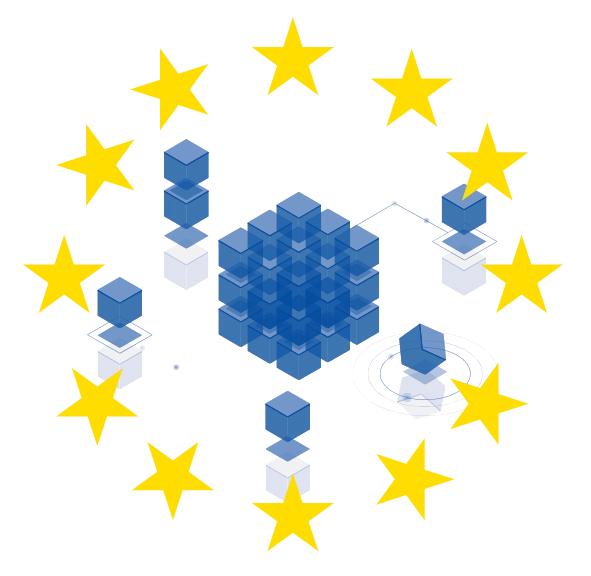
Who does it benefit ?
The EBSI is a blockchain project that will benefit various parts of society :
- Public administrations: for the issuing of secure digital administration documents, and instant verification of data authenticity ;
- Private companies: facilitating their interactions with administrative services, also thanks to the cross-border standard ;
- Citizens: enabling them to have secure control over their own personal identity data, and facilitating their professional mobility throughout the European Economic Area.
What are the aspirations for blockchain in European public services ?
“In the future, all public services will use blockchain technology. Blockchain is a tremendous opportunity for Europe and its Member States to rethink their information systems, promote user trust and personal data protection, help create new business opportunities, and establish new areas of leadership, for the benefit of citizens, public services and businesses.”
– Mariya Gabriel, European Commissioner for Digital Economy and Society
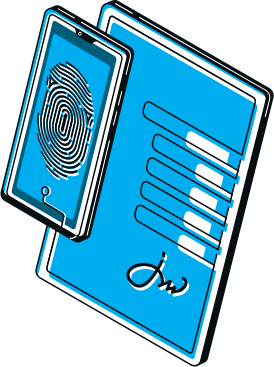
Enabling citizens to securely control their own identity data
Every citizen has a series of official documents, issued by authorities, institutions and companies, such as an identity card, driver’s license, post code, personnel file, certificate, or diploma. The digitalization of such documents is essential in order to meet the expectations of society, and the opportunities and benefits offered by digital technology, such as documents that are easier to procure, and harder to steal or lose over time.
The objective of the EBSI project is to leverage the advantages of blockchain technology to create decentralized European identity credentials that only the individual citizen has secure control of.
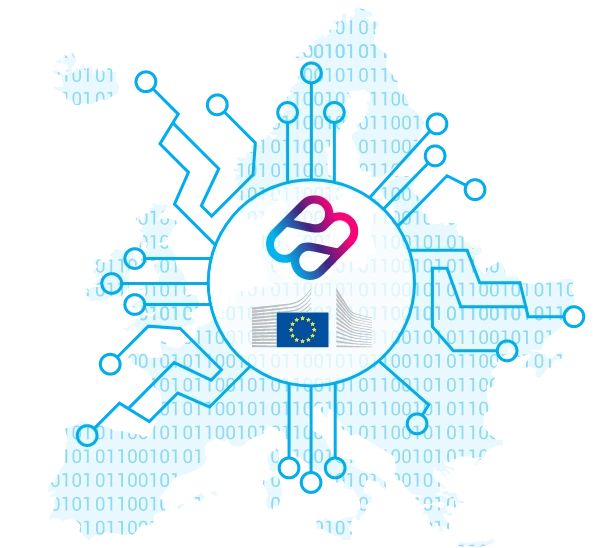
How? Every identity document issued by a European institution would be verified, and kept by the citizen together with all their other verified documents in a secure digitized wallet. Only the individual citizen would have access to their identity file, and would, therefore, be able to decide when and what information to share with third-party organizations, such as public institutions, services or private companies, anywhere across Europe.
Citizens will even be able to create their own secure administrative documents, such as business information, invoicing details, and notary documents.
Guaranteeing a cross-border European standard for the verification of administrative data
By its nature, a digital administrative document data stored on the blockchain is 100% reliable, tamper-proof, and verifiable. The EBSI is building a European standard that will ensure administrative data is automatically verified, and compliant across all European countries.
With the EBSI, public services will be able to instantly prove the authenticity of the identity data of any European citizen.

The ambition of the EBSI is also to enable European administrative authorities to share administrative data securely, such as healthcare, VAT and social security numbers.
Guaranteeing the sustainability and traceability of administrative processes
The EBSI initiative aims to promote the cross-border mobility of European citizens, for travel and professional reasons, throughout their lives.
Indeed, the durability of data stored on the blockchain allows digitalized administrative data and documents to be fully traceable from their very moment of creation to over the whole lifetime of the citizen.
An EBSI use case: BCdiploma blockchain diplomas
Durable, verifiable and tamper-proof credentials and certificates
BCdiploma has created the very first blockchain-based diplomas, certificates and micro-certificates, following the EBSI guidelines, with data that is traceable, tamper-proof and easily verifiable.
Any educational or training organization can easily create and manage its own blockchain certificates, and issue them to its students or trainees, from a dedicated platform.
Organizations and companies can, therefore, make significant savings in terms of time and money by automating their processes of issuing, sending and managing digital blockchain education and training certificates.
Soon to be published on the EBSI blockchain
BCdiploma diplomas and certificates are easily shareable in the form of a link or URL, and can be displayed on social networks such as LinkedIn. They can be instantly translated into English, to allow students to apply easily to international universities or companies.
With early news suggesting the EBSI blockchain infrastructure will soon be finalized, BCdiploma solutions will be immediately integrated with it, in order to allow students to receive, store and share them using the exact same cross-border standards, thus strengthening their professional mobility right across the Euro area. So, in the future, any student from any EU country will be able to apply for a master’s degree in any foreign European university, obtain their degree or diploma, and apply for an internship abroad, just by clicking and sharing their digital credentials, safely and securely.
Want to know more about BCdiploma’s blockchain solutions and use cases ? You’ll find more here !
